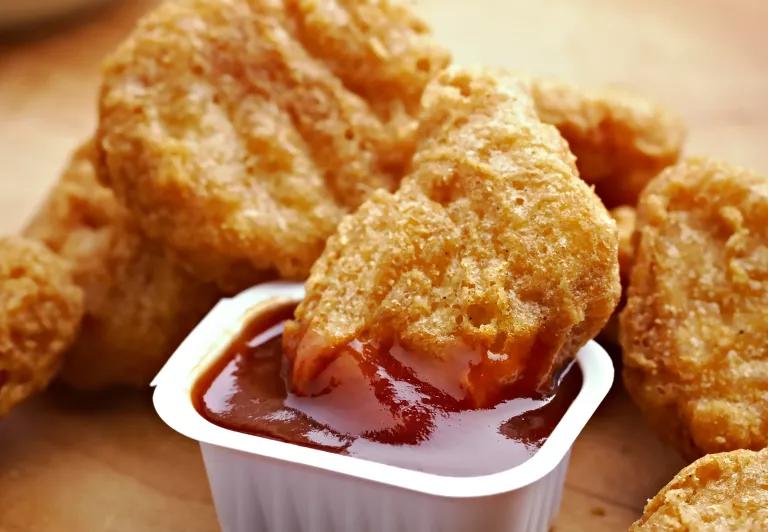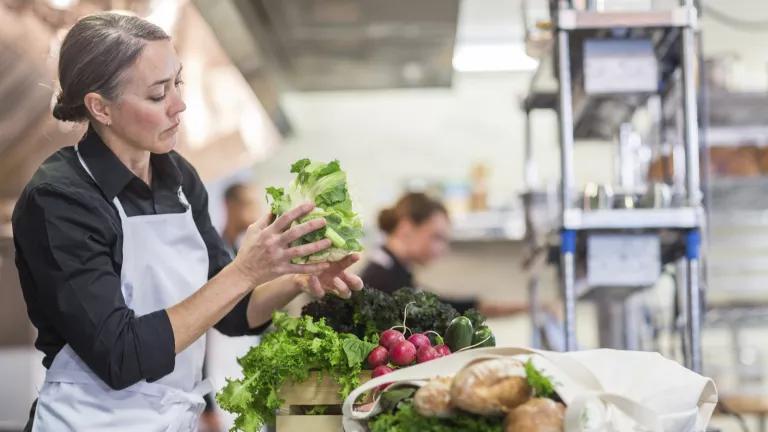
Making good on last year’s pledge, McDonald’s announced today that 100 percent of the chicken sold in their 14,000 U.S. restaurants now meets their March 2015 antibiotics commitment—a little more than six months ahead of their original implementation schedule. The company had originally promised to serve only chicken produced without antibiotics important to human medicine within two years’ time. McNuggets lovers will also be pleased to learn that these new responsible antibiotics practices on the part of McDonald’s chicken suppliers—listed as Keystone Foods, Tyson, and Dorada on the company website—are being audited under a U.S. Department of Agriculture “Process Verified” program.
This expedited time frame and transparency is wonderful news for anyone who cares about public health. While all antibiotics overuse—human and agricultural—contributes to the growing global crisis of drug-resistant infections, the fact remains that 70 percent of medically important antibiotics (classes of drugs also used in human medicine) in the United States are sold for use on animals, not people. Antibiotics are often given to animals that are not sick, to speed up growth or in anticipation of diseases they may contract in unhealthy, stressful confinement conditions. These problematic practices fuel drug-resistant infections in people and animals.

McDonald’s is part of a leading group of major companies who are committed to sourcing chicken produced without routine antibiotics, most notably Chipotle, Panera, Chick-fil-A, Subway, and recently, Taco Bell. By contrast, KFC stands out as the signature chicken purveyor that is far behind. NRDC and our allies have been calling on the largest chicken restaurant chain in the United States to set a similar antibiotics policy for its chicken suppliers since January but have yet to see any meaningful movement from this iconic fried chicken chain.
McDonald’s leadership on antibiotics use in chicken set off a wave of change in the industry last year, with producers like Tyson making new pledges, followed by a series of commitments from other players in the fast-food industry. (We will report more on the current state of affairs with antibiotics in U.S. restaurants chains later this year, with the release of the second Chain Reaction report). Today we applaud McDonald’s and urge the company to expand its positive efforts on chicken into meaningful antibiotics policies that also apply to pork and beef, the other mainstay meats on the restaurant chain’s menus.
When it comes to chicken produced without routine antibiotics, McDonald’s has proven that where there is a will, there is a way. We hope that KFC is paying attention.




